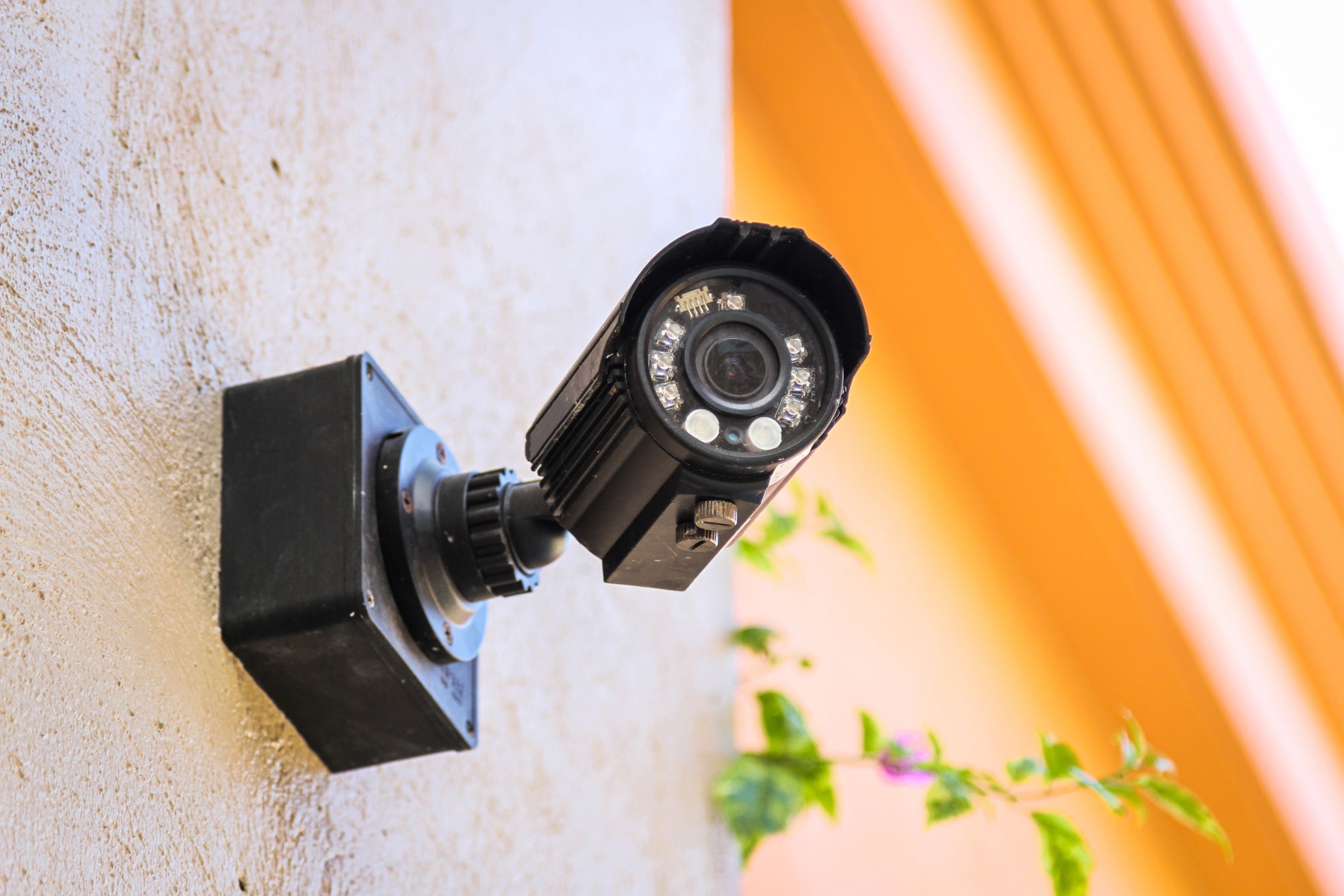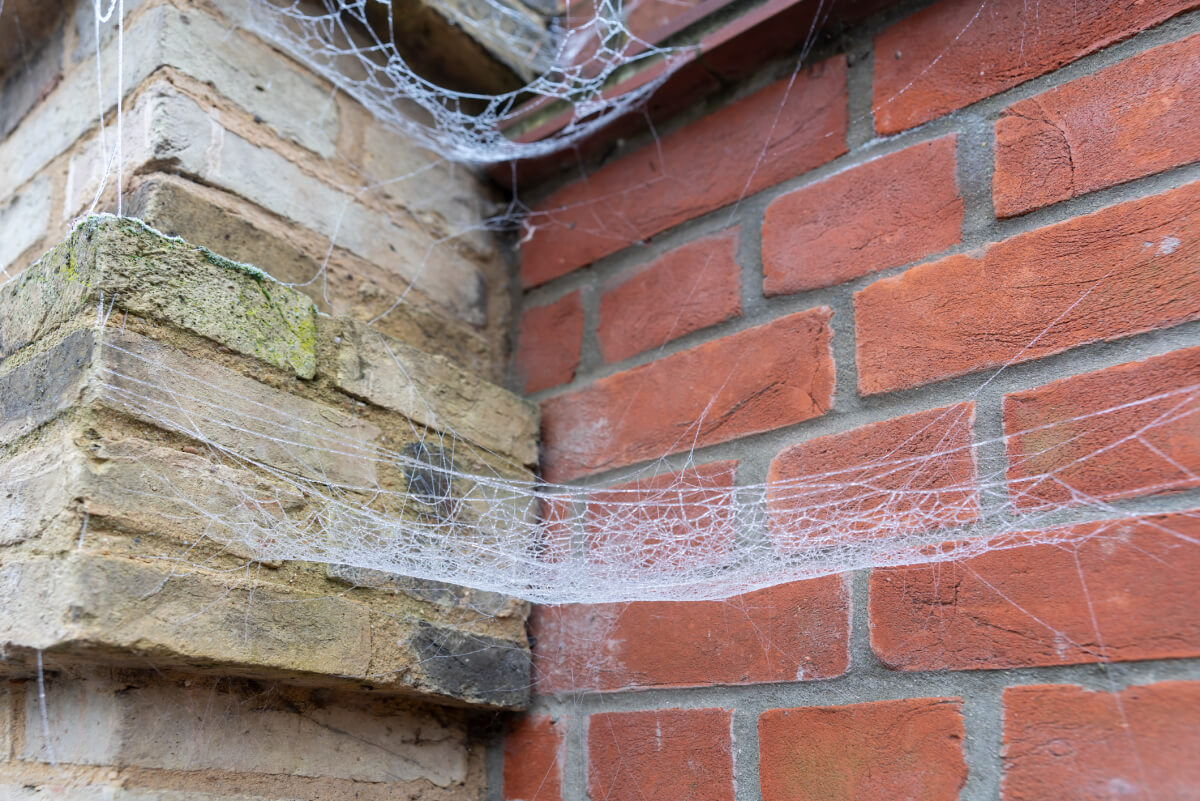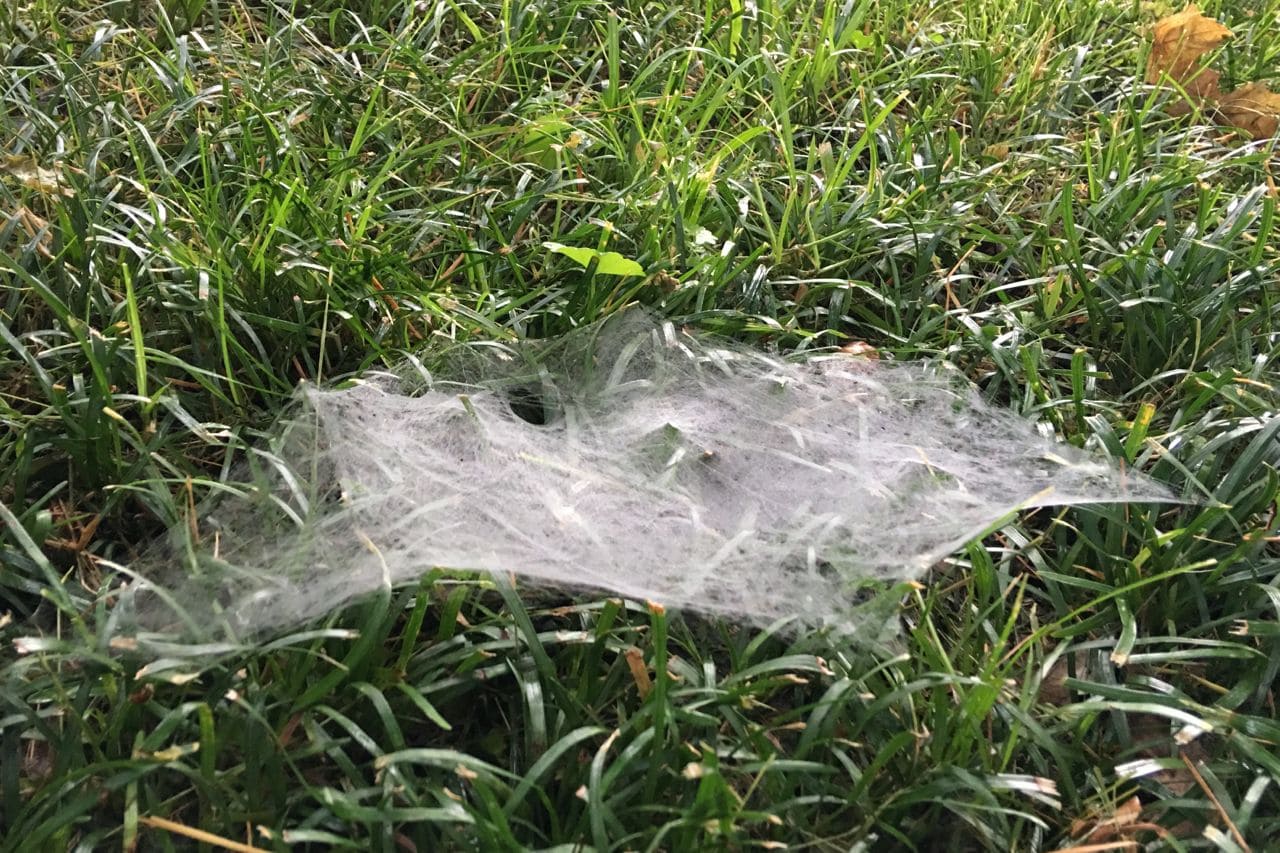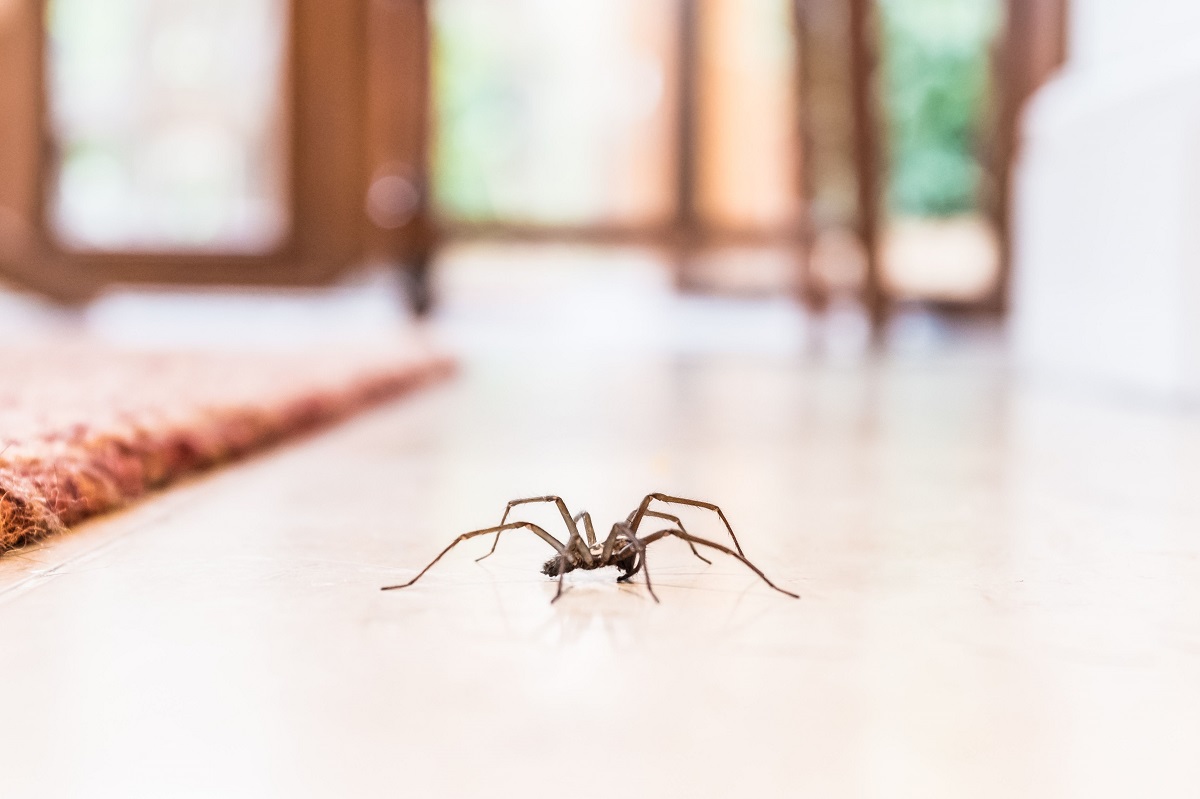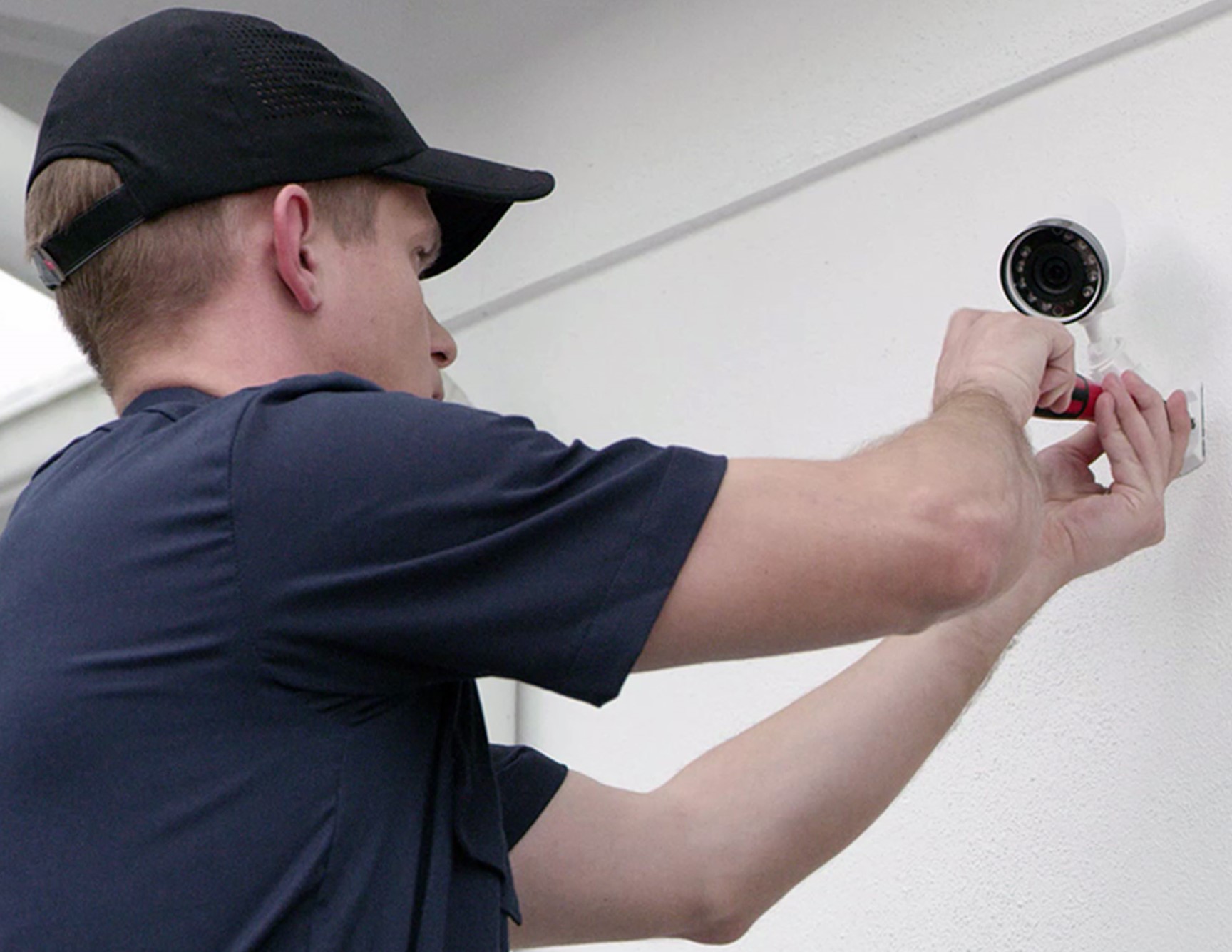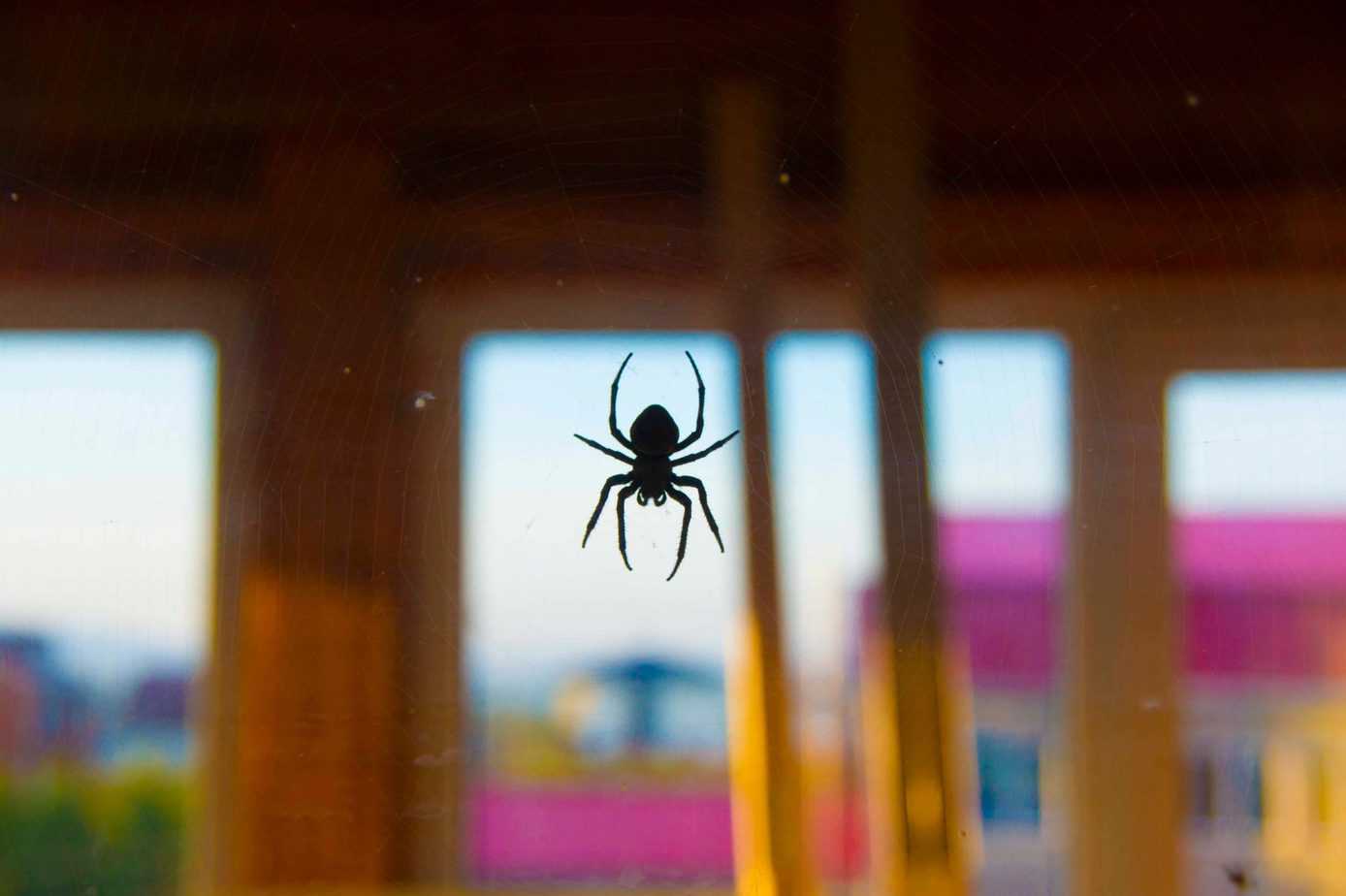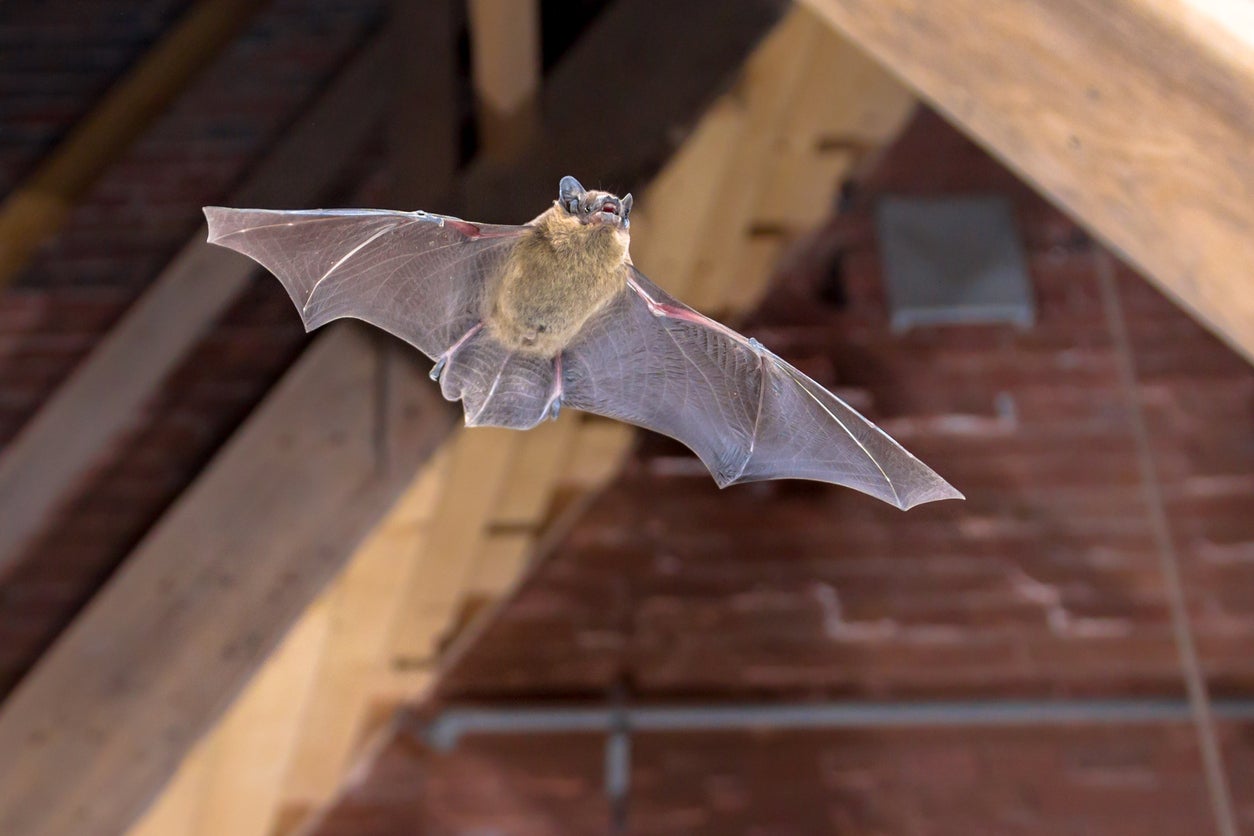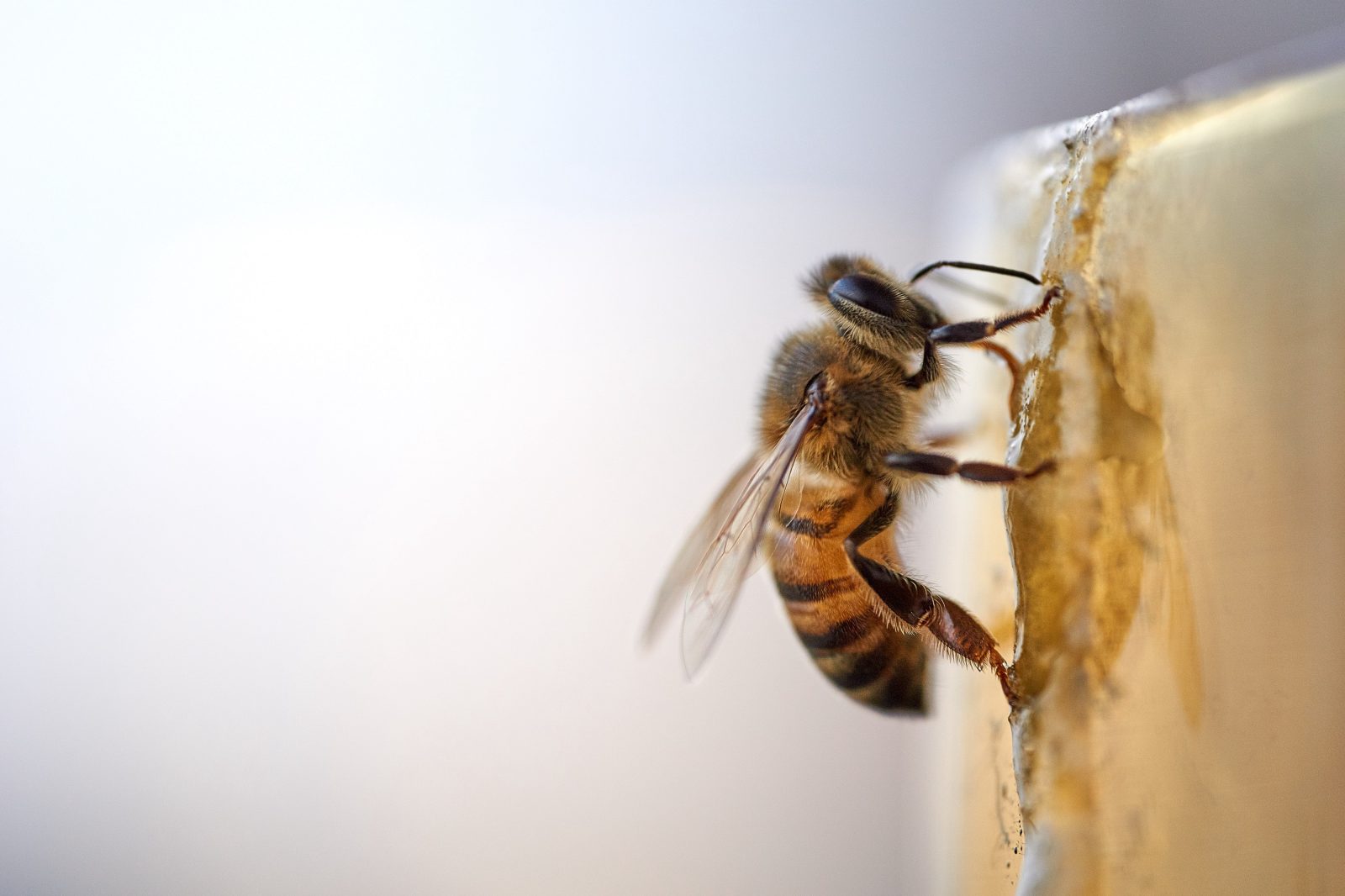Home>Home Security and Surveillance>How To Keep Spider Webs Away From Security Cameras
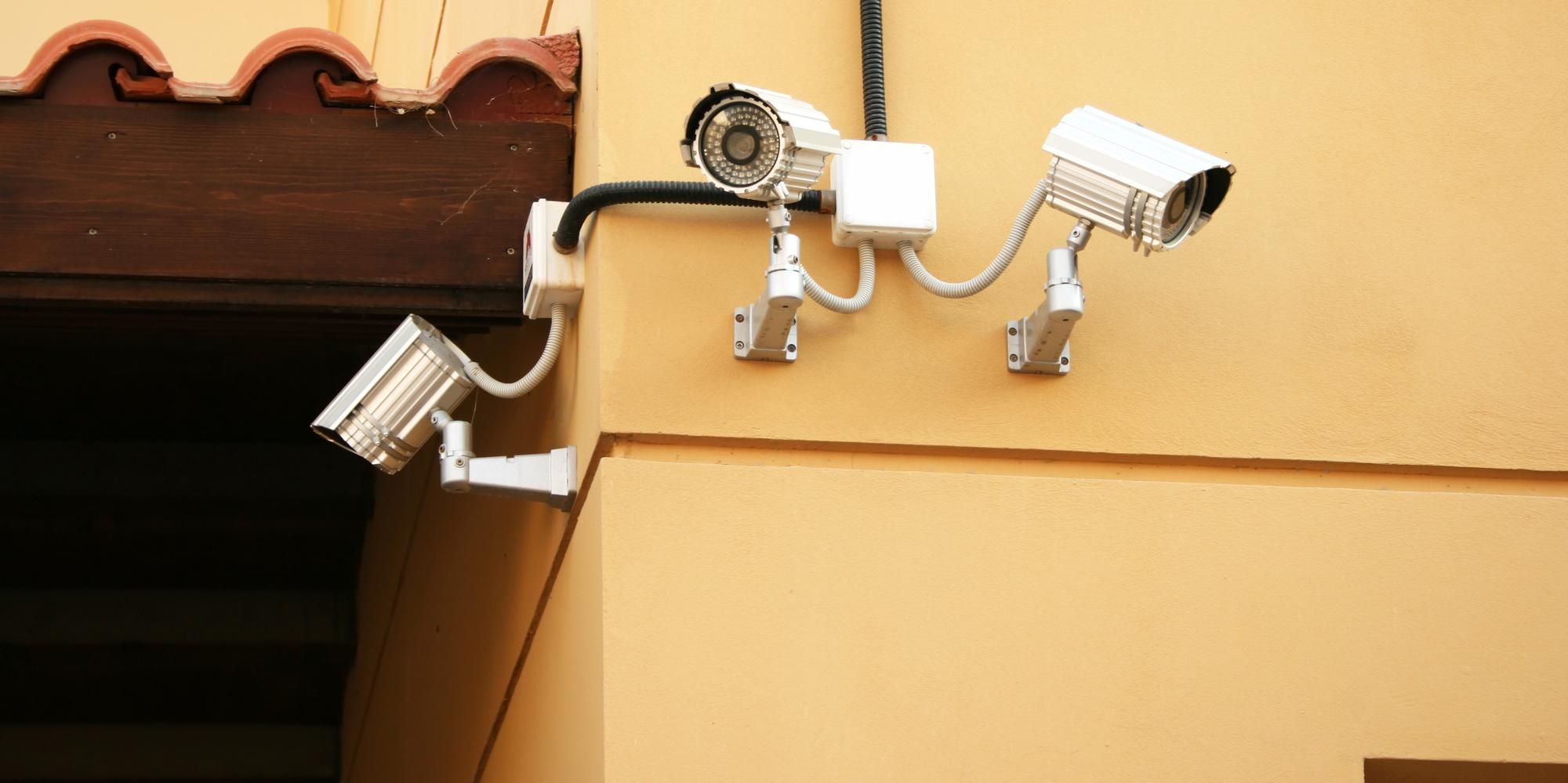

Home Security and Surveillance
How To Keep Spider Webs Away From Security Cameras
Modified: March 19, 2024
Looking for ways to keep spider webs away from your home security and surveillance cameras? Check out these effective tips to maintain clear camera footage and enhance your home security.
(Many of the links in this article redirect to a specific reviewed product. Your purchase of these products through affiliate links helps to generate commission for Storables.com, at no extra cost. Learn more)
Introduction
Welcome to the world of home security and surveillance! In today’s fast-paced and uncertain world, ensuring the safety of our homes and loved ones has become a top priority. One of the most effective ways to achieve this is by installing security cameras.
However, along with the numerous benefits of security cameras comes a common issue – spider webs. It seems like no matter where you place your cameras, these eight-legged creatures find their way and create intricate webs that not only obstruct the view but also affect the camera’s functionality.
In this article, we will delve into the importance of keeping spider webs away from security cameras. We will explore the reasons behind the web infestation and provide you with practical tips and solutions to prevent and eliminate these pesky webs. So, let’s dive in!
Key Takeaways:
- Don’t let spider webs ruin your security camera’s performance. Regular cleaning and natural repellents like peppermint oil can keep those pesky spiders at bay.
- Strategic camera placement and professional installation can help prevent spider webs on security cameras, ensuring clear and effective surveillance.
Understanding the Problem
Spying spiders and their intricate webs can cause a host of problems when it comes to security cameras. Not only do spider webs obstruct the camera’s view, but they can also interfere with the lens and motion sensors, rendering your surveillance system ineffective.
Spider webs can accumulate dust and debris over time, further diminishing the camera’s performance and clarity. Moreover, the presence of spider webs may give intruders an advantage by providing them with visual camouflage.
It’s important to understand that spiders are naturally drawn to areas that provide shelter and a source of prey – two factors often found near security cameras. The nooks and crannies surrounding your cameras, such as corners, eaves, and outdoor lighting fixtures, serve as ideal spots for spiders to build their webs. They can lay their eggs and feed on small insects that are attracted to the camera’s infrared lights at night.
Another aspect to consider is the type of environment surrounding your property. If you live in an area with a dense population of spiders, such as a wooded or rural area, you may encounter a higher presence of spider webs on your security cameras.
By understanding the problem and why spiders are attracted to security cameras, you can take proactive measures to prevent and manage this issue. Let’s explore some compelling reasons why keeping spider webs away from security cameras is of utmost importance.
Importance of Keeping Spider Webs Away from Security Cameras
Keeping spider webs away from your security cameras is not just about aesthetics; it plays a crucial role in ensuring the overall effectiveness of your surveillance system. Here are some key reasons why this is important:
- Clear and Unobstructed View: Spider webs can obstruct the camera’s view, leading to blurry or distorted footage. This can compromise the ability to identify intruders, monitor activities, or gather evidence in case of an incident. By keeping the camera’s lens free from webs, you can ensure a clear and unobstructed view at all times.
- Optimal Camera Performance: Spider webs can interfere with the camera’s functionality, including motion sensors, autofocus, and infrared capabilities. This can result in false alarms, delayed notifications, and reduced image quality. Regular maintenance and removal of spider webs will help maintain the optimal performance of your security cameras.
- Preventing False Alarms: Spider webs can trigger motion sensors, leading to frequent false alarms. These false alarms not only waste time and resources but can also desensitize you to genuine alerts. By keeping the camera area free from webs, you can minimize false alarms and respond more effectively to real security threats.
- Longevity of Equipment: Spider webs, along with the dust and debris they accumulate, can gradually damage the camera and its components. Over time, this can lead to reduced lifespan and costly repairs or replacements. Regularly cleaning and removing spider webs can extend the longevity of your security camera equipment.
- Deterrent for Intruders: A clean and well-maintained surveillance system sends a strong message to potential intruders. It indicates that the property is actively monitored and that any suspicious activity will be captured with clarity. By ensuring spider webs are kept away from your cameras, you enhance the overall effectiveness of your security system as a deterrent.
Now that we understand the importance of keeping spider webs away from security cameras, let’s explore the common reasons for spider webs on security cameras and how to address them effectively.
Common Reasons for Spider Webs on Security Cameras
Spider webs on security cameras can be frustrating, but understanding the reasons behind their presence can help you tackle the issue more effectively. Here are some common reasons why spiders are attracted to security cameras:
- Shelter and Protection: Spiders are naturally inclined to seek out sheltered areas. The structure of security cameras, with their nooks, corners, and crevices, provides a perfect hiding spot for spiders to build their webs. These webs offer protection from predators and harsh weather conditions.
- Source of Prey: Security cameras, especially those equipped with infrared lights for night vision, attract small insects, such as moths and flies. Spiders recognize this as a potential food source and settle near the cameras to catch these insects in their webs.
- Outdoor Lighting Fixtures: Cameras that are positioned near outdoor lighting fixtures are prone to attracting spider webs. Spiders are drawn to the warmth and light that these fixtures emit, creating an ideal environment for them to build their webs.
- Location and Surroundings: The location and surroundings of your property can influence the presence of spiders and their webs on security cameras. If your property is surrounded by vegetation, dense foliage, or areas with a high population of spiders, you are more likely to encounter this problem.
- Camera Placement: Sometimes, the placement of your security cameras can inadvertently make them more susceptible to spider webs. Cameras positioned at lower heights or in corners are more likely to accumulate webs due to their proximity to the ground and the natural pathways spiders take.
Now that you have an understanding of the common reasons behind spider webs on security cameras, let’s explore some precautionary measures and effective cleaning tips to keep them at bay.
Precautionary Measures
Preventing spider webs from forming on your security cameras requires a proactive approach. By taking the following precautionary measures, you can reduce the chances of spiders making your cameras their home:
- Strategic Camera Placement: Consider the location and surroundings when placing your security cameras. Try to avoid areas with dense vegetation or places where spiders are likely to thrive. Opt for higher camera placements, away from eaves, corners, and outdoor lighting fixtures.
- Seal Entry Points: Ensure that there are no entry points for spiders to access your cameras. Seal any cracks, gaps, or openings near the camera housing, cables, or mounting brackets. This will create a physical barrier and prevent spiders from getting close to the cameras.
- Use Anti-Insect Lighting: Consider using anti-insect lighting fixtures in the vicinity of your security cameras. These lights emit wavelengths that are less attractive to insects, reducing the chances of spiders being drawn to the area.
- Keep Surroundings Clean: Regularly clean and maintain the area around your security cameras. Trim back vegetation, clear away debris, and remove any potential hiding spots for spiders. Keeping the area clean and free from clutter will discourage spiders from settling near your cameras.
- Professional Installation: If you are not confident in installing your security cameras, consider hiring a professional installer. They will ensure that the cameras are mounted properly and take necessary precautions to prevent spider infestation.
- Regular Inspections: Perform regular inspections of your security cameras to check for spider webs and other potential issues. Set up a schedule to clean and maintain the cameras to ensure their optimal performance.
Implementing these precautionary measures will significantly reduce the chances of spider webs forming on your security cameras. However, if you still find webs despite taking these precautions, it’s essential to know the proper cleaning techniques to ensure the longevity and functionality of your cameras.
Regularly clean the area around security cameras to remove any potential spider habitats. Use a natural spider repellent spray, such as peppermint oil, to deter spiders from building webs near the cameras.
Read more: How To Keep Spiders Away From Outdoor Lights
Regular Cleaning Tips
Maintaining a regular cleaning routine for your security cameras is essential to keep them free from spider webs and to ensure optimal performance. Here are some tips for effective cleaning:
- Gather the necessary tools: Before starting the cleaning process, gather the necessary tools such as a soft-bristle brush, microfiber cloth, canned air, and a non-abrasive cleaning solution. Avoid using harsh chemicals or abrasive materials that may damage the camera’s housing or lens.
- Power off the cameras: Before cleaning, make sure to power off the cameras to avoid any accidental damage or interference with their functionality. This will also prevent any false alerts or notifications during the cleaning process.
- Remove dust and debris: Carefully inspect the camera’s housing and lens for any dust or debris. Use a soft-bristle brush or canned air to gently remove any particles. Take extra care around sensitive components and avoid using excessive force.
- Clean the lens: The camera’s lens is a critical component that requires special attention. Dampen a microfiber cloth with a non-abrasive cleaning solution or lens cleaning solution. Gently wipe the lens in a circular motion, starting from the center and moving outward. Avoid applying excessive pressure to prevent scratching the lens.
- Wipe the camera housing: Use a clean, damp microfiber cloth to wipe the camera housing and remove any dirt or smudges. Ensure that the cloth is only slightly damp and not dripping wet, as excessive moisture can seep into the camera and cause damage.
- Inspect for spider webs: Thoroughly inspect the camera’s nooks, corners, and crevices for any remaining spider webs. If you spot any, carefully remove them using a soft-bristle brush or by gently blowing on them. Be cautious not to damage any delicate components.
- Regular maintenance schedule: Set up a regular maintenance schedule to clean your security cameras. The frequency may depend on factors such as the outdoor environment, the presence of spiders, and the season. A quarterly or biannual cleaning routine may be sufficient, but adjust it accordingly as needed.
By following these regular cleaning tips, you can keep your security cameras free from spider webs and ensure their optimal performance and longevity.
Natural Repellents for Spider Webs
If you prefer to use natural methods to deter spiders and prevent the formation of webs on your security cameras, there are several natural repellents you can try. Here are some effective options:
- Peppermint Oil: Spiders are repelled by the scent of peppermint oil. Mix a few drops of peppermint oil with water in a spray bottle and apply the solution around the camera housing and surrounding areas. Reapply regularly to maintain its effectiveness.
- Vinegar: Spiders dislike the strong smell of vinegar. Create a mixture of equal parts vinegar and water, and spray it around the camera and areas where spiders are likely to build webs. Take care not to spray directly on the camera or sensitive components.
- Citrus Peels: Spiders are also known to dislike citrus scents. Place citrus peels, such as lemon or orange, near the cameras to discourage spiders from approaching. Replace the peels every few days to maintain their effectiveness.
- Eucalyptus: Spiders are naturally deterred by the smell of eucalyptus. You can use eucalyptus essential oil mixed with water or place eucalyptus branches or leaves around the camera to repel spiders.
- White Vinegar and Dish Soap: Create a solution of white vinegar and dish soap in a spray bottle. Spray the mixture on areas prone to spider webs, ensuring it reaches cracks and crevices. The combination of vinegar’s strong smell and the stickiness of the dish soap can deter spiders from building webs.
- Cedar Wood: Spiders are known to dislike the scent of cedar. Place cedar wood chips or sachets near your security cameras to help repel them. The scent of the cedar will discourage spiders from approaching the area.
While natural repellents can be effective in deterring spiders, it’s important to note that their effectiveness may vary depending on the species and individual preferences of spiders in your area. Regular monitoring and maintenance are still necessary to ensure spider webs do not accumulate on your security cameras.
Now that you have learned about natural repellents, let’s explore some alternative solutions for dealing with spider webs on security cameras.
Alternative Solutions
If traditional cleaning and natural repellents are not providing the desired results in keeping spider webs away from your security cameras, there are alternative solutions that you can consider:
- Camera Housing Modifications: Explore camera housing options that are specifically designed to deter spiders. Some camera housings are designed with smooth surfaces and angles that make it difficult for spiders to build their webs.
- Ultrasonic Repellents: Ultrasonic devices emit high-frequency sound waves that are unpleasant to spiders and other pests. These devices can be installed near your security cameras to create a deterrent effect. However, keep in mind that the effectiveness of ultrasonic repellents varies depending on the specific brand and model.
- Professional Pest Control: If your spider infestation is severe or persistent, it may be best to seek professional pest control services. Pest control professionals have the knowledge and tools to assess the situation, treat the infestation, and provide ongoing prevention strategies.
- Replace Outdoor Lighting: If the outdoor lighting fixtures near your security cameras are attracting spiders, consider replacing them with alternative lighting options that are less attractive to insects and spiders. LED lights, for example, emit less heat and may be less appealing to spiders.
- Consider Different Camera Types: If spider webs on security cameras continue to be a persistent issue, you may want to explore alternative camera types. Dome cameras or cameras with sealed enclosures are less prone to spider web accumulation, as they have fewer areas for spiders to build their webs.
- Regular Monitoring and Maintenance: Stay vigilant and regularly check your security cameras for any signs of spider webs or other maintenance issues. Promptly remove any webs you encounter and take necessary steps to prevent them from recurring.
Combining these alternative solutions with the precautionary measures and regular cleaning tips mentioned earlier can help you effectively manage spider webs on your security cameras.
Now that we have explored various methods to prevent and eliminate spider webs on security cameras, let’s wrap up our discussion.
Conclusion
Keeping spider webs away from your security cameras is crucial for maintaining their effectiveness and ensuring optimal performance. By understanding the reasons behind spider infestation, implementing precautionary measures, and following regular cleaning and maintenance routines, you can significantly reduce the chances of spider webs forming on your cameras.
Clear and unobstructed camera views, optimal performance, minimized false alarms, increased longevity of equipment, and a strong deterrent for intruders are some of the key benefits of keeping spider webs away from security cameras.
In addition to regular cleaning, using natural repellents such as peppermint oil, vinegar, and citrus peels can help deter spiders from approaching your cameras. If traditional methods do not yield desired results, alternative solutions like modified camera housings, ultrasonic repellents, or seeking professional pest control services can be considered.
Remember to conduct regular inspections, cleanings, and maintenance to ensure the ongoing functionality and longevity of your security cameras. By incorporating the tips and techniques discussed in this article, you can enjoy clear, unobstructed surveillance and peace of mind knowing that your cameras are well-maintained and spider-web-free.
Now, armed with this knowledge, you can take the necessary steps to keep those pesky spider webs away from your security cameras and maintain a reliable and effective home surveillance system.
Frequently Asked Questions about How To Keep Spider Webs Away From Security Cameras
Was this page helpful?
At Storables.com, we guarantee accurate and reliable information. Our content, validated by Expert Board Contributors, is crafted following stringent Editorial Policies. We're committed to providing you with well-researched, expert-backed insights for all your informational needs.
